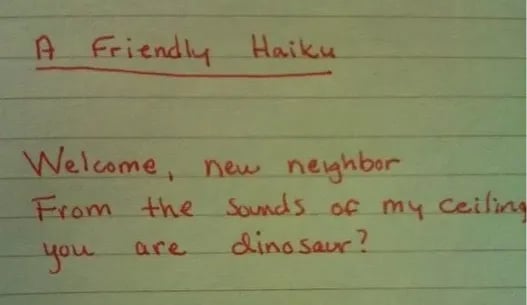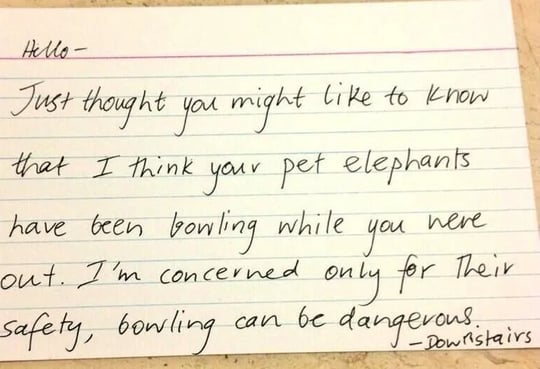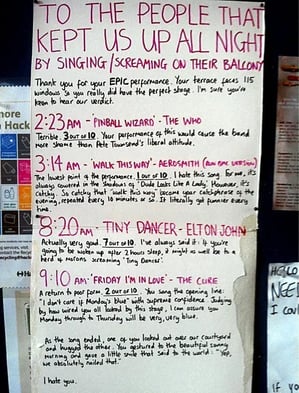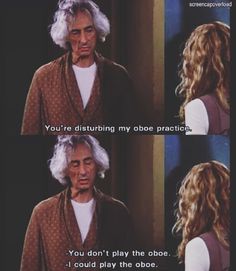Noise Exposure
‘You’re doing it again, you’re disturbing my oboe practise!’ Does this line ring any bells? It’s the famously grumpy Mr Heckles from the even more famous TV sitcom Friends. Mr Heckles would often complain to Monica and Rachel about the apparent noise they were making tapping the ceiling with a broom. Whilst looking into noise for this week’s CES Toolbox Talk, I came across some rather hilarious complaints from disgruntled neighbours as seen in the pictures (For more funny complaints stories click here).

When it comes to noise, it’s a very common occupational hazard and we should be doing more to look after our hearing as once you’re deaf, you’re deaf; there is no cure! Hearing damage can have a huge impact on your life at work and in social situations making it difficult to communicate and leading to more accidents. The Control of Noise at Work Regulations (2005) give so useful pointers as to how we can look after our hearing, preventing and controlling noise at work.

It’s important to look at who’s at risk. Anyone we operates or works closely with heavy plant machines or regularly uses power tools can be at risk. You probably need to consider control measures if workers have to raise their voices when talking while about 2 metres apart for at least part of the working day, use noisy powered tools or machinery for more than half an hour each day or are exposed to noises from regular impacts such as pneumatic drills. In general sounds over 85 decibels are harmful though it is dependent on how long you’re exposed to them and whether you are wearing ear protection. To put these decibels in perspective, normal conversation is about 60 decibels, a lawn mower is about 90 decibels and a loud music concert is about 120 decibels.
Prevention is better than cure as they say so look at eliminating unnecessary noisy tasks at the design stage of processes or using alternative methods that do not generate so much noise. Could you isolate workers from noisy tasks by keeping doors and windows of vehicle cabins closed or using remote controlled equipment? Always shut down equipment when they are not needed or are not in use. If there are certain processes that cannot be avoided ensure that you try to move the noise source away from the work area or the work area away from the noise or set up noise exclusion zones therefore limiting people’s access to noisy areas. Try shielding noisy processes with sound absorbing materials such as spoil heaps and of course always make sure workers are wearing hearing protection. Did you know you can select low-noise tools and equipment? Check out Buy Quiet or think about modifying equipment with mufflers to intakes, sound panels on engines or silencers on exhausts. Finally we would suggest rotating workers to limit the time workers are exposed to noise. ‘Weekly averaging’ may be used to ensure exposures are managed and include ‘quiet days’ when scheduling work.
The industry we are in unfortunately does generate rather a lot more noise than your standard office job and with that can come complaints from your Grumpy Mr Heckles-types! So make sure you’re building a good relationship with your neighbours to keep the peace and keep them as friends.
